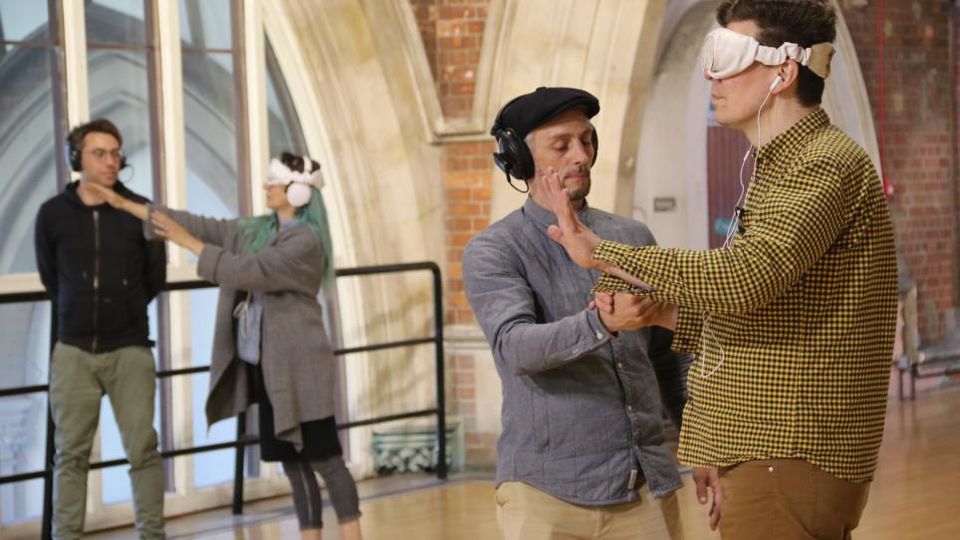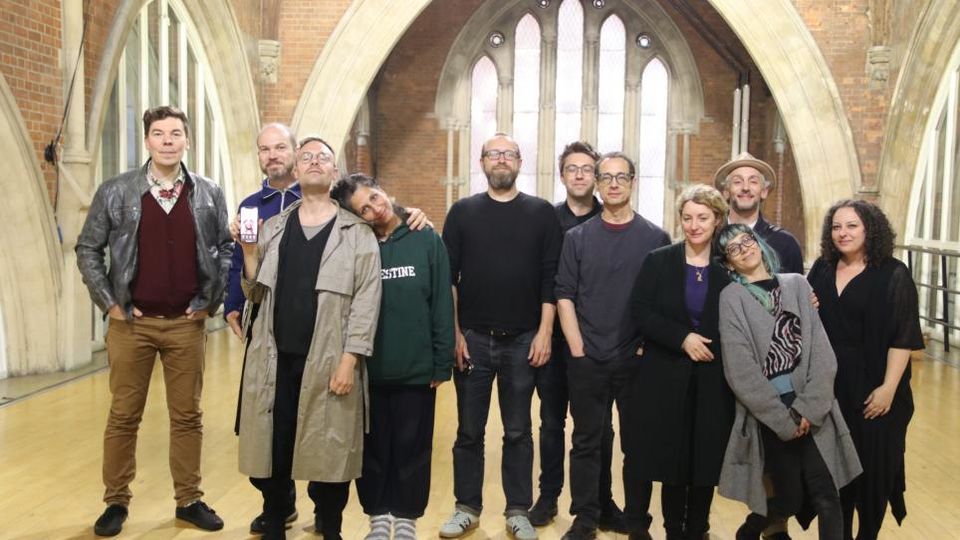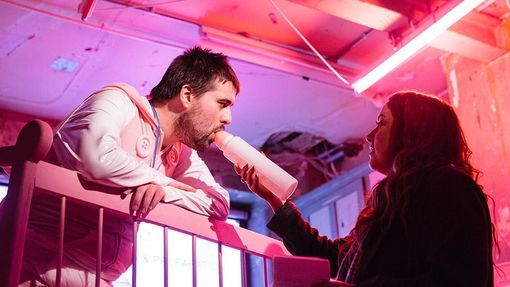Image

PIINetwork Lab 1
The project’s ‘lab’ events are gatherings of practitioners, to share practices and ideas, provoking and supporting developments in our work. The first Lab took place on the 16thand 17thof May, 2019, at Jackson’s Lane Arts Centre in Highgate. Participants included:
- Persis-Jade Maravala, Jorge Lopez-Ramos & James Turpin, ZU:UK
- Silvia Mercuriali
- Christer Lundahl, Ludahl&Seitl
- Natalie Scott and Joe Thorpe, The Lab Collective
- Nick Llewellyn, Access All Areas
- Dr Jaakko Stenros, Tampere University, Finland
- Dr Jane Munro, Royal Central School of Speech and Drama
- Dr David Shearing, Royal Central School of Speech and Drama
- Professor Bruce Barton, University of Calgary (co-investigator)
- Dr Gareth White, Royal Central School of Speech and Drama (lead investigator)
The day sessions were structured around a series of workshops led by network members, with time scheduled to reflect and respond. The network also ate breakfast, lunch and dinner together, to seamlessly extend conversation as much as possible, in less organized settings. There was a highly productive sense of continuity, and community amongst the participants (and perhaps because of) the significant differences in disciplines, training paradigms, cultures, and performance priorities.
Thursday’s session began with Jaakko’s introduction to Larp (Live Action Role Play) and its approaches to facilitating risky interaction between participants. Exercises included ‘replication protocols’ for violent and sexual encounters within the fiction of the larp. The afternoon was spent trying out and responding to one of Lundahl & Seitl’s headphone-based works, where the spectators take turns to become guides to each other while moving, blindfolded, through a re-imagined space.
Friday’s morning session was led by Jade & Jorge, sharing some of ZU:UK’s work, leading physical exercises for preparing to work creatively with audiences, followed creating, adapting and playing each other’s games. In the afternoon Natalie and Joe shared some of Lab Collective’s practices for creating and preparing for audience interactions, and for mapping routes and options within interactive performances.
Prior to the lab short statements were shared on two of the key themes of the project: play and intensity, as a result, some common concerns emerged and they were fed into discussion at the lab:
- Orientation of and reliance on design – of space, material, and experience
- Sensation as focus
- Trust and risk, comfort and discomfort (or panic)
- Gamification: engagement with instructions, rules, conditions, contexts, realities.
- Freedom, within a controlled field.
- Playfulness and/or confrontation
- Challenging/altering expectations/perceptions
- Loss of awareness through intense focus, abandonment to the action
- Self-reflection / mindfulness
- Varieties of intensity: including apparent passivity
The conversation led to other topics including:
- Difficulties of sustaining practice (and practitioners) that depends on intimacy
- The ‘scaling’ of work when aesthetically and ethically appropriate
- The failings of some commercial immersive theatre
- Artists taking care of each other as well as of their participants
- Preparation, of artists and of participants
- Different attitudes and approaches to gauging (or not) the effect and affect of participatory practices
- Structuring (or not) activity and interaction.
The next step for the network is to pick up some of these themes for further conversation, online, in preparation for Lab 2 in the autumn and as a way to deepen and extend the insights gained so far.


